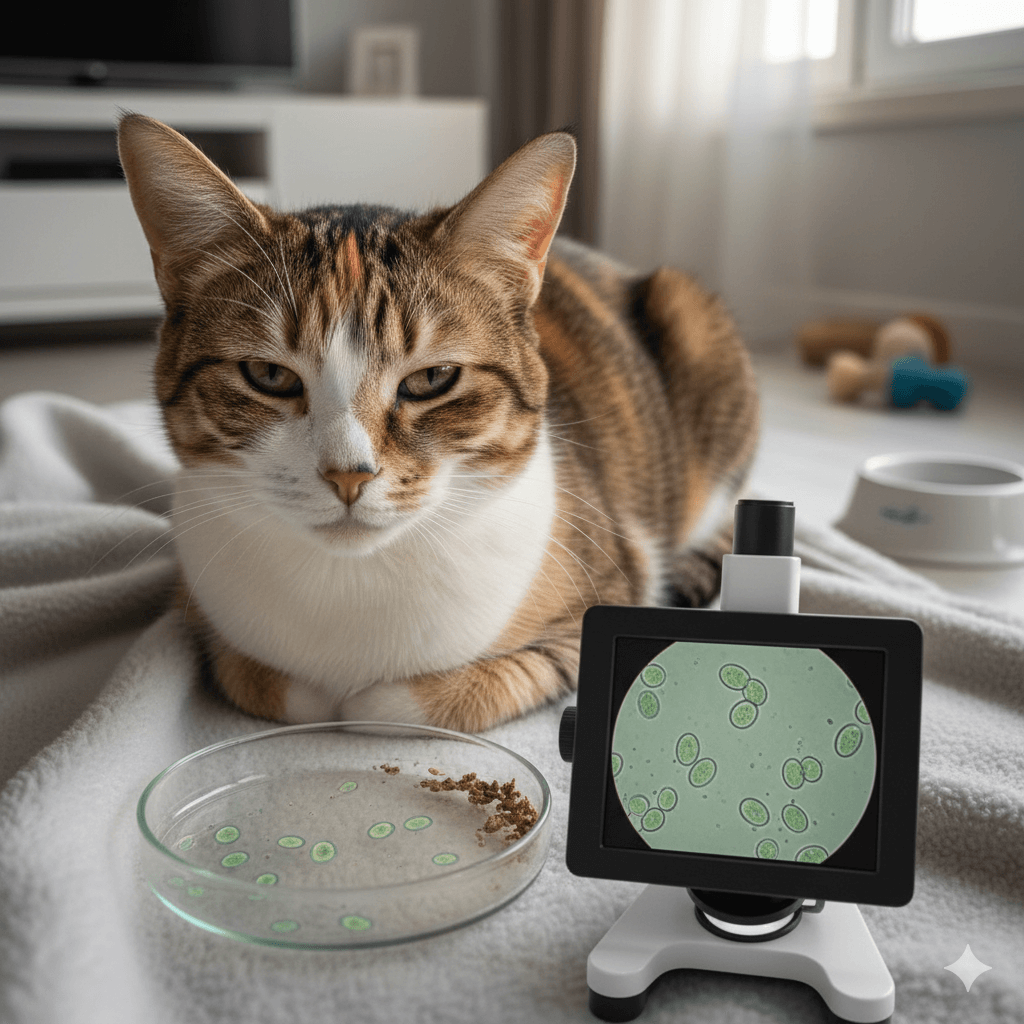Do Cat Allergies Go Away? Understanding the Possibilities
For many cat lovers, discovering that they have a cat allergy can feel like a heartbreaking blow. The thought of parting ways with your feline companion or avoiding cats altogether is far from ideal. But here’s the good news: while cat allergies are often lifelong, there are cases where symptoms may improve or even disappear over time. Whether you’re newly diagnosed or have been managing allergies for years, understanding how and why this happens can provide hope and guidance. In this blog post, we’ll explore the factors that influence cat allergies, whether they can truly go away, and practical steps to manage or reduce symptoms. Let’s dive into the details and uncover what’s possible for cat allergy sufferers.
Factors That Influence Cat Allergy Symptoms
Cat allergies are caused by an immune system reaction to proteins found in a cat’s skin, saliva, or urine. While these allergies are typically chronic, certain factors can influence their severity or persistence. Here’s what you need to know:
Age of Onset
Allergies can develop at any age, but those that appear in childhood may improve as the immune system matures.Exposure Levels
Frequent, controlled exposure to cats may help some individuals build tolerance, though it can worsen symptoms for others.Overall Health
A strong immune system, supported by a healthy lifestyle, can sometimes reduce the intensity of allergic reactions.Environmental Factors
Clean air, reduced allergens, and minimizing other irritants (like dust or pollen) can lessen the burden on your immune system.Genetic Predisposition
Family history plays a role in whether allergies persist or improve over time.
Understanding these factors can help you identify potential triggers and take steps to manage your symptoms effectively. While not all allergies will go away, many people find ways to live comfortably with their furry friends.
Signs That Your Cat Allergy May Be Improving
If you’ve had cat allergies for a while, you might wonder if your symptoms are getting better. While complete resolution isn’t guaranteed, there are signs that suggest improvement. Here’s what to look for:
Reduced Sneezing or Runny Nose
Fewer episodes of sneezing or nasal congestion may indicate that your immune system is adapting.Less Itchy Eyes
If your eyes no longer feel irritated or watery around cats, it could be a positive sign.Improved Breathing
Easier breathing without wheezing or chest tightness suggests your respiratory system is less reactive.Decreased Skin Reactions
Fewer hives or rashes after contact with cats may mean your body is tolerating allergens better.Longer Exposure Without Symptoms
Being able to spend more time around cats without discomfort is a clear indicator of progress.
While these signs are encouraging, it’s important to monitor your condition closely. If symptoms return or worsen, consult a healthcare professional for further advice.
Check this guide 👉Antihistamine for Cat Allergy: Best 7 Health Tips!
Check this guide 👉Do Air Purifiers Help with Cat Allergies? Best 7 Tips!
Check this guide 👉Cat Allergic to Litter: Best 7 Health Tips!

Ways to Manage Cat Allergies | Signs of Improvement in Cat Allergies |
|---|---|
Use HEPA air purifiers | Reduced sneezing or runny nose |
Bathe your cat regularly | Less itchy or watery eyes |
Wash hands after petting cats | Improved breathing without wheezing |
Keep cats out of bedrooms | Decreased skin reactions like hives |
Minimize carpets and upholstered furniture | Longer exposure without symptoms |
Practical Steps to Reduce Cat Allergy Symptoms
Even if your cat allergy doesn’t fully go away, there are several strategies to minimize symptoms and create a more comfortable environment. Here are some practical tips:
Use Air Purifiers
HEPA air purifiers can remove allergens from the air, reducing their impact on your respiratory system.Clean Frequently
Vacuum carpets, wash bedding, and dust surfaces regularly to eliminate lingering allergens.Bathe Your Cat
Bathing your cat every few weeks can reduce dander, though it may not be practical for all felines.Create Allergy-Free Zones
Designate certain areas, like your bedroom, as off-limits to your cat to reduce exposure.Wear Protective Gear
When grooming or cleaning up after your cat, wear gloves and a mask to limit direct contact with allergens.
By implementing these measures, you can significantly reduce your exposure to allergens and make living with a cat more manageable. Consistency is key to seeing results.
When to Seek Professional Help for Cat Allergies
If your cat allergy symptoms persist or worsen despite your best efforts, it’s time to seek professional medical advice. Here are some scenarios where consulting a doctor is essential:
Severe Symptoms
Difficulty breathing, swelling, or anaphylaxis requires immediate medical attention.Persistent Symptoms Despite Treatment
If over-the-counter medications aren’t helping, a specialist can recommend stronger options.Desire for Long-Term Solutions
Allergy shots (immunotherapy) may help desensitize your immune system to cat allergens over time.Impact on Daily Life
If allergies interfere with work, sleep, or relationships, it’s worth exploring treatment options.Uncertainty About Triggers
An allergist can perform tests to confirm whether cats are the primary cause of your symptoms.
Professional guidance can provide clarity and relief, helping you navigate life with cat allergies more effectively. Don’t hesitate to reach out if you’re struggling.
Common Misconceptions About Cat Allergies
There are several myths surrounding cat allergies that can lead to confusion or misinformation. Clearing up these misconceptions can help allergy sufferers make informed decisions about managing their condition. Here are some common misunderstandings:
Myth: Cat allergies are caused by cat hair.
In reality, allergens come from proteins in a cat’s skin (dander), saliva, and urine, not their fur.Myth: Only people with asthma suffer from cat allergies.
While asthma can worsen symptoms, anyone with a sensitive immune system can develop cat allergies.Myth: Allergy shots cure cat allergies immediately.
Immunotherapy takes time to build tolerance and doesn’t work for everyone.Myth: Keeping cats outdoors eliminates allergens indoors.
Even outdoor cats can track allergens inside on their fur or paws.Myth: You can’t live with a cat if you’re allergic.
With proper management, many people successfully coexist with cats despite allergies.
Understanding the truth behind these myths empowers you to take practical steps toward living comfortably with cats.
Tips for Choosing a Low-Allergen Cat Breed
If you’re considering adopting a cat but worry about allergies, certain breeds are known to produce fewer allergens. While no cat is truly hypoallergenic, these breeds may be easier to live with. Here are some tips for selecting a low-allergen cat:
Look for Cats with Shorter or Less Dense Coats
Breeds like the Devon Rex or Cornish Rex have shorter fur, which may reduce dander accumulation.Consider Hairless Breeds
The Sphynx cat lacks fur entirely, minimizing allergen spread through shedding.Research Low-Shedding Breeds
Breeds like the Siberian or Balinese are believed to produce fewer allergenic proteins.Spend Time with the Cat Before Adopting
Visit shelters or breeders to gauge your reaction to specific cats before making a commitment.Ask About Grooming Habits
Cats that groom themselves excessively may spread more saliva-based allergens.
Choosing the right breed can make a significant difference in managing allergies, but remember that individual reactions vary. Always prioritize your health and comfort.
Fun Facts About Cats and Allergies
Cat allergies might seem like a frustrating topic, but there are fascinating aspects to explore. Learning fun facts about cats and allergens can deepen your appreciation for these unique creatures. Here are some intriguing tidbits:
Male Cats Produce More Allergens Than Females
Unneutered male cats tend to produce higher levels of Fel d 1, the primary allergen protein.Kittens May Cause Fewer Symptoms
Younger cats often produce fewer allergens, though this can change as they mature.Allergens Can Linger for Months
Even after a cat leaves a home, allergens can remain in carpets and furniture for up to six months.Some People Outgrow Cat Allergies
Children who develop cat allergies sometimes outgrow them as their immune systems adapt.Scientists Are Working on an Allergy-Free Cat
Researchers are exploring genetic modifications to create cats that produce fewer allergens.
These fun facts highlight the complexity of cat allergies and ongoing efforts to address them. They remind us that science and compassion continue to pave the way for better solutions.
Frequently Asked Questions About Cat Allergies
Can cat allergies go away completely?
For some people, cat allergies may improve or resolve over time, but for most, they remain lifelong.
Are there hypoallergenic cats?
While no cat is completely hypoallergenic, some breeds produce fewer allergens than others.
Can I build immunity to cat allergies?
Some individuals develop tolerance through controlled exposure, but it’s not guaranteed and may worsen symptoms for others.
How long does it take to see improvement with allergy shots?
Allergy shots typically take several months to show noticeable results, with full benefits seen after 1-3 years.
Can I keep my cat if I’m allergic?
Yes, many people with cat allergies successfully coexist with their pets by managing symptoms and reducing allergen exposure.
Finding Balance: Living with Cat Allergies
While cat allergies may not always go away, there are plenty of ways to manage them and enjoy the companionship of your feline friend. By understanding the factors that influence your symptoms and taking proactive steps to reduce allergens, you can create a harmonious home environment. Remember, seeking professional advice when needed ensures you’re equipped with the best tools to navigate life with allergies. With patience, care, and determination, you can strike a balance that works for both you and your beloved cat. After all, the joy and love cats bring into our lives are worth every effort.
Understanding Cryptosporidium in Cats: Best 7 Expert Tips! – Spot symptoms, treat safely, and stop parasite spread in your home.
Understanding Cryptosporidium in Dogs: Best 7 Expert Tips! – Learn symptoms, treatment & prevention for this stubborn gut parasite.
Understanding Syringomyelia in Cats: Best 7 Expert Tips! – Recognize signs, manage pain, and support your cat’s neurological health with vet-backed guidance.
Understanding Syringomyelia in Dogs: Best 7 Expert Tips! – Expert insights on symptoms, MRI diagnosis, pain management & quality of life.





